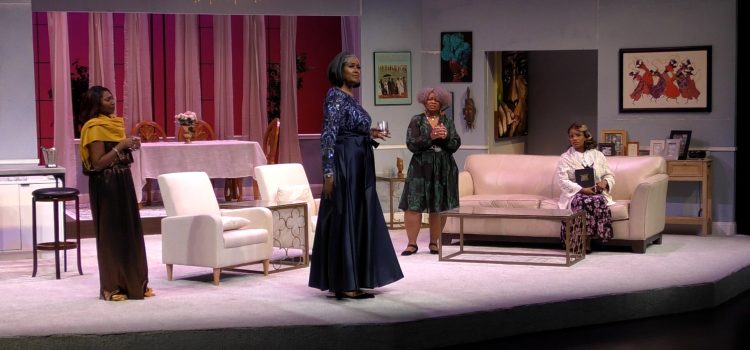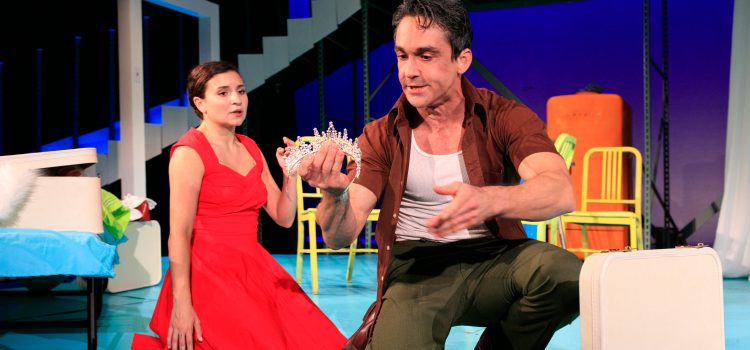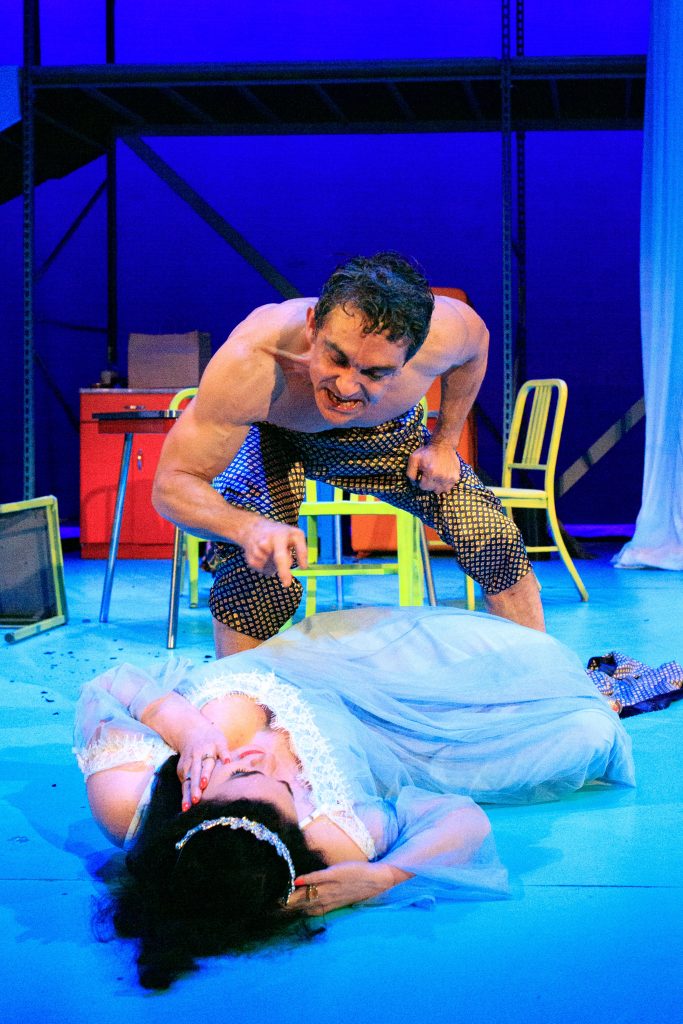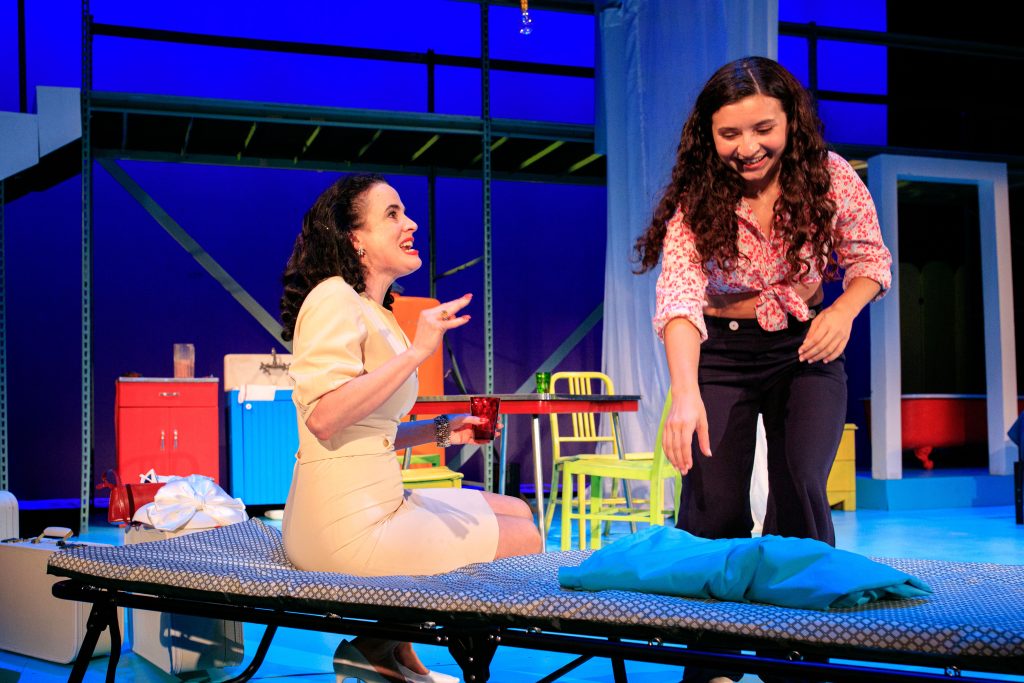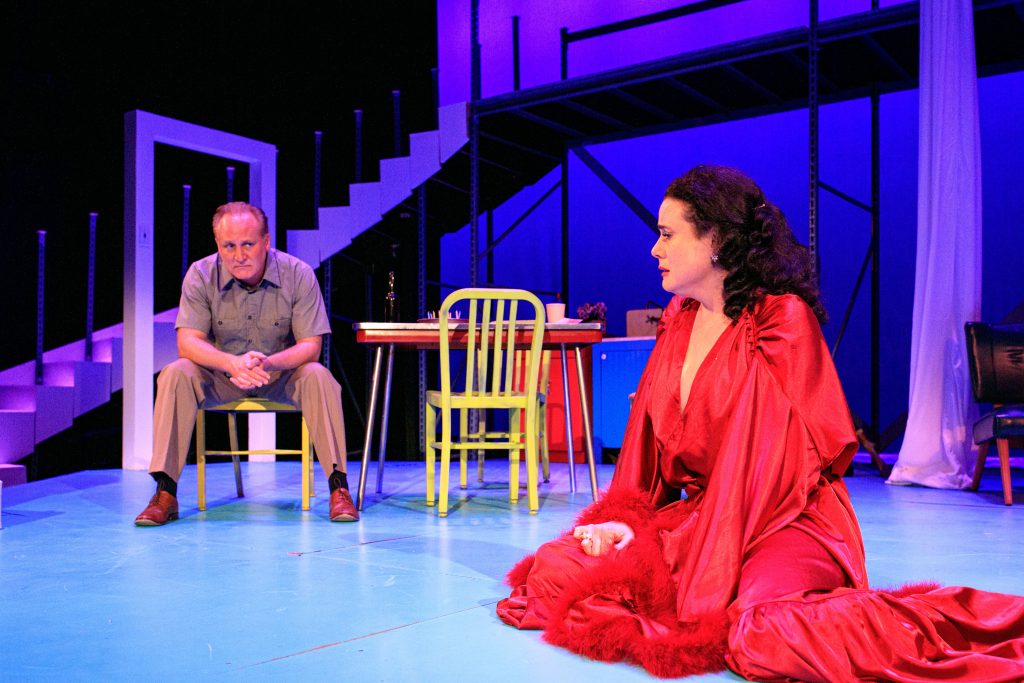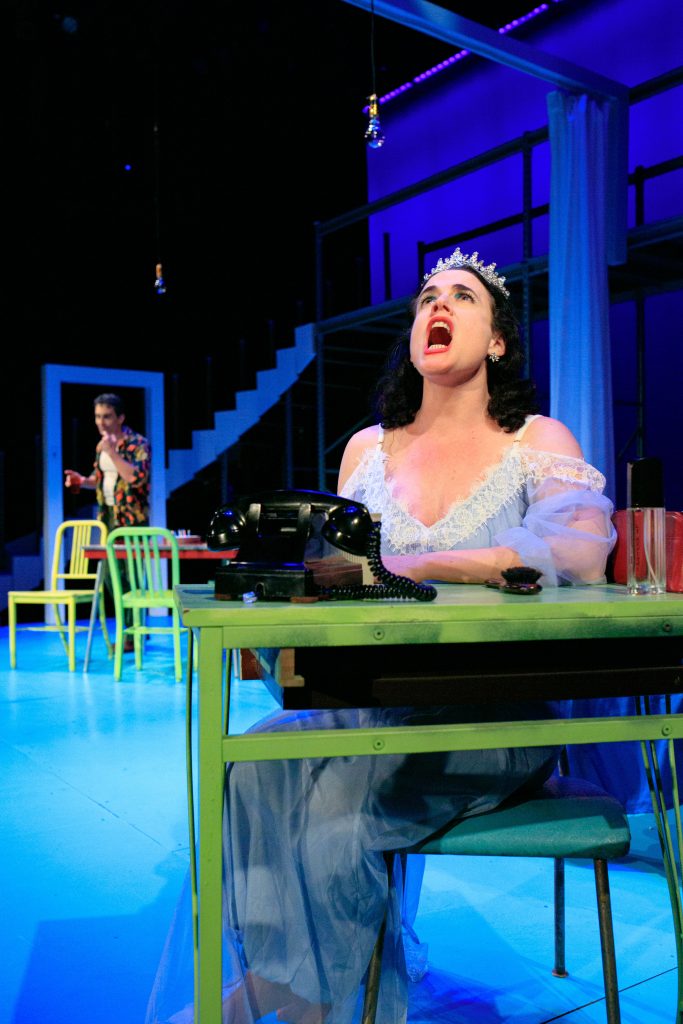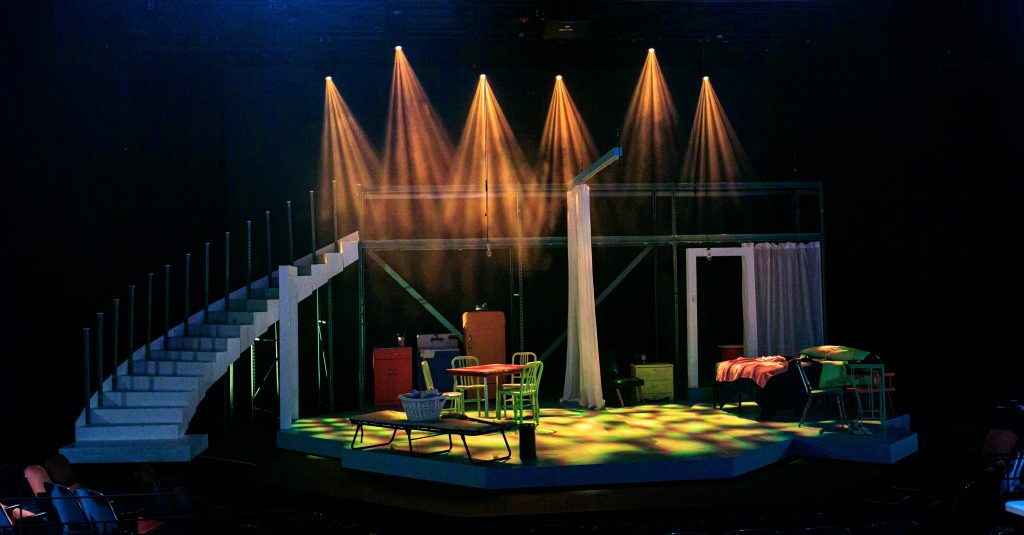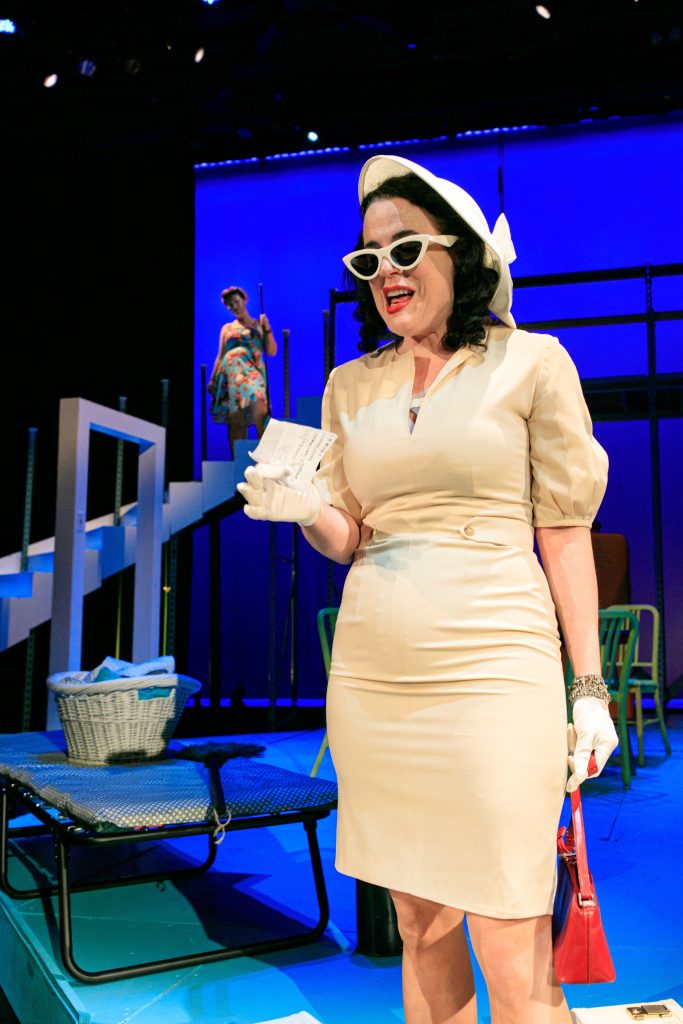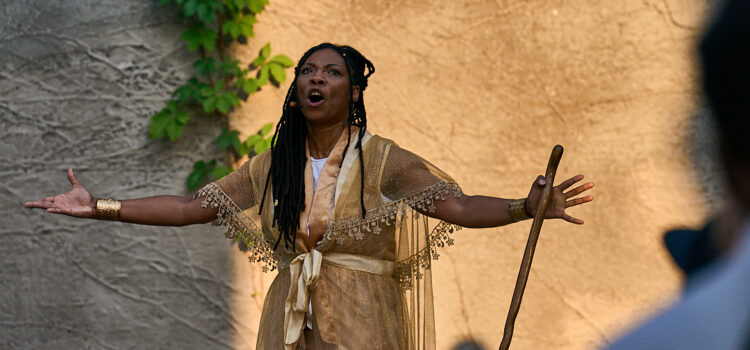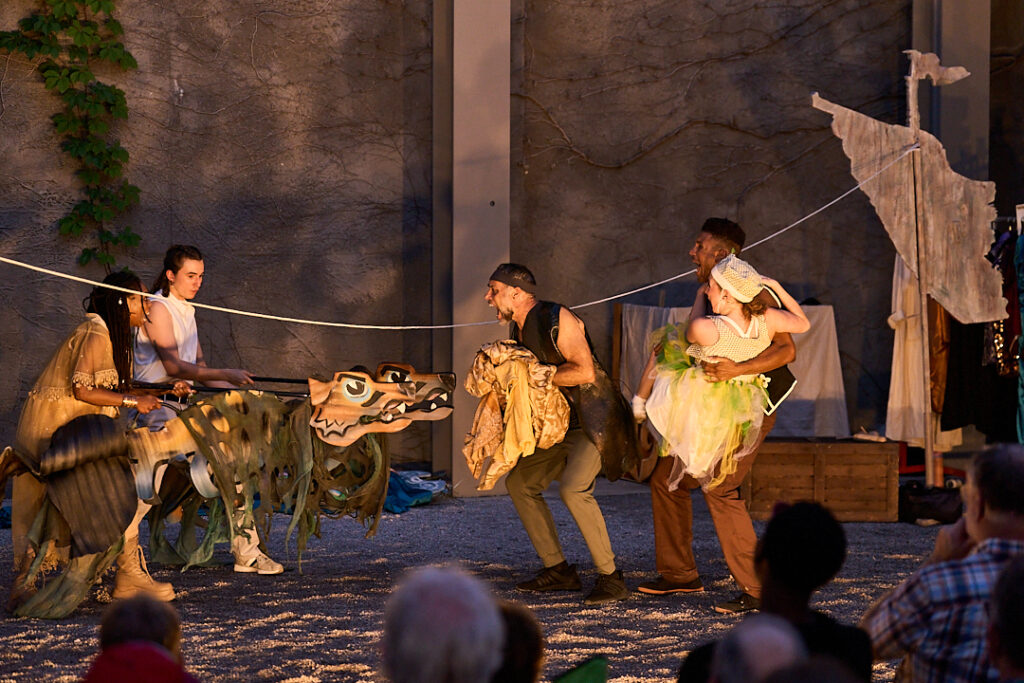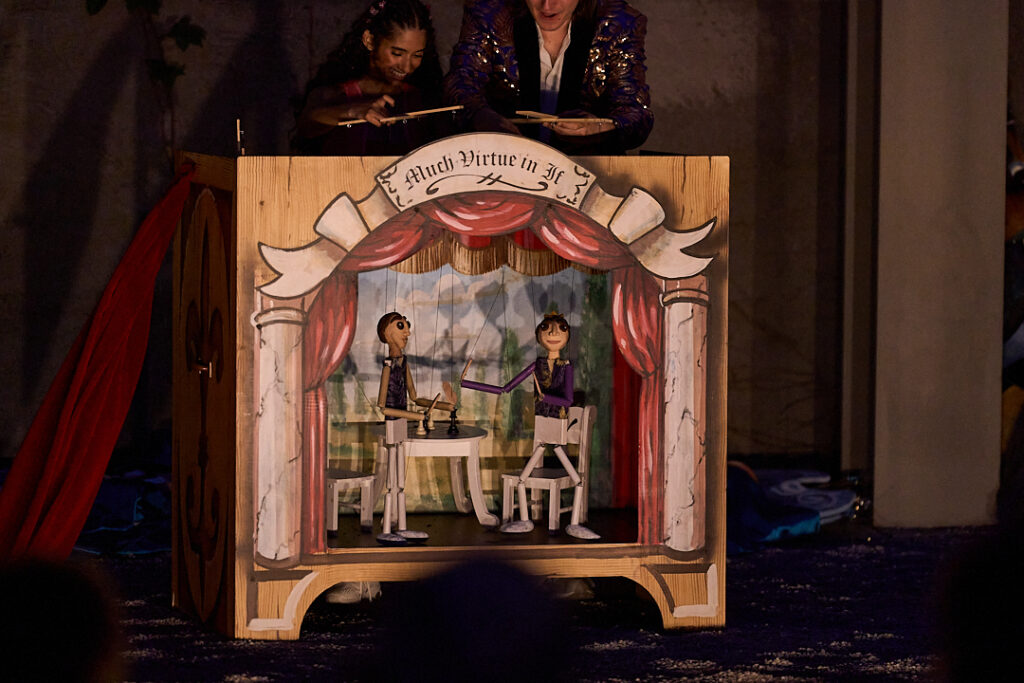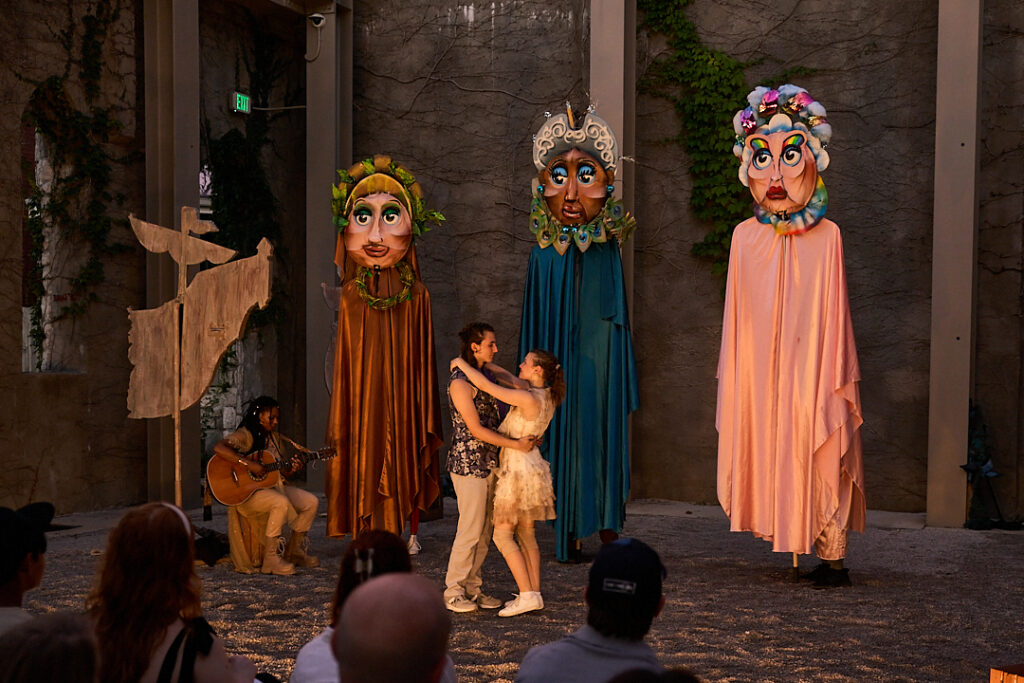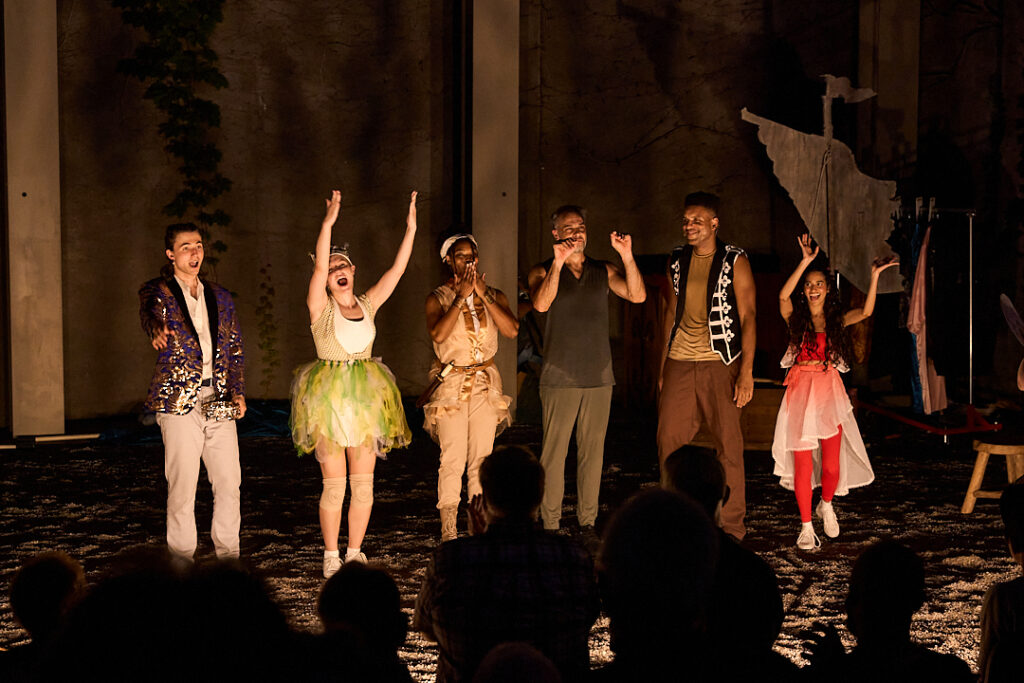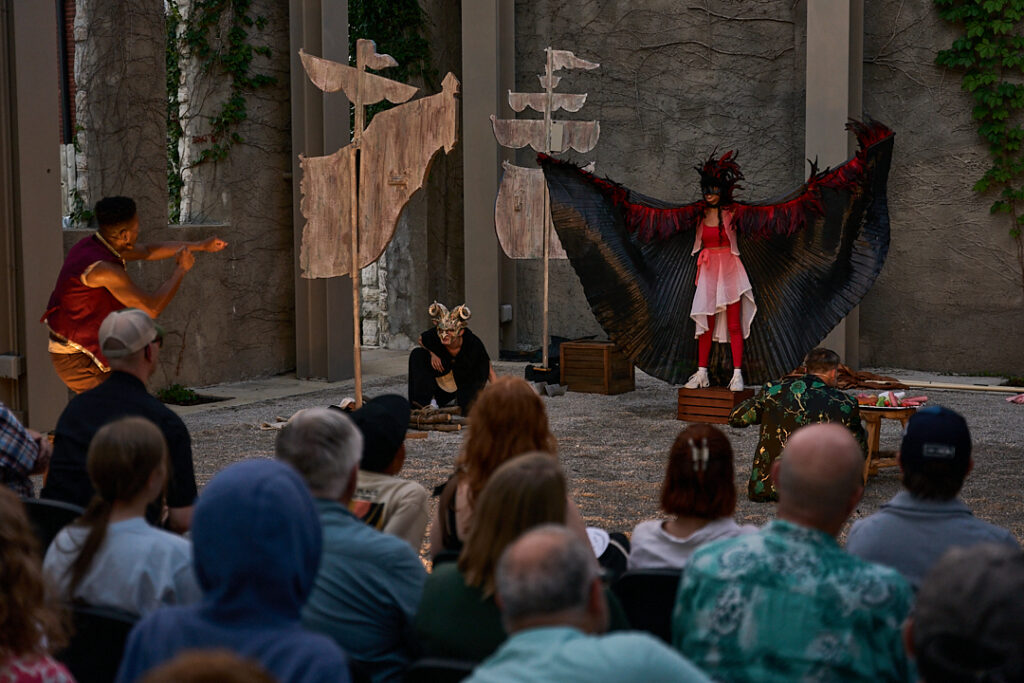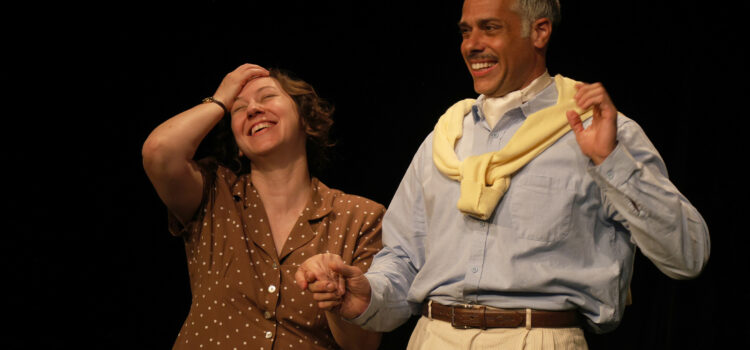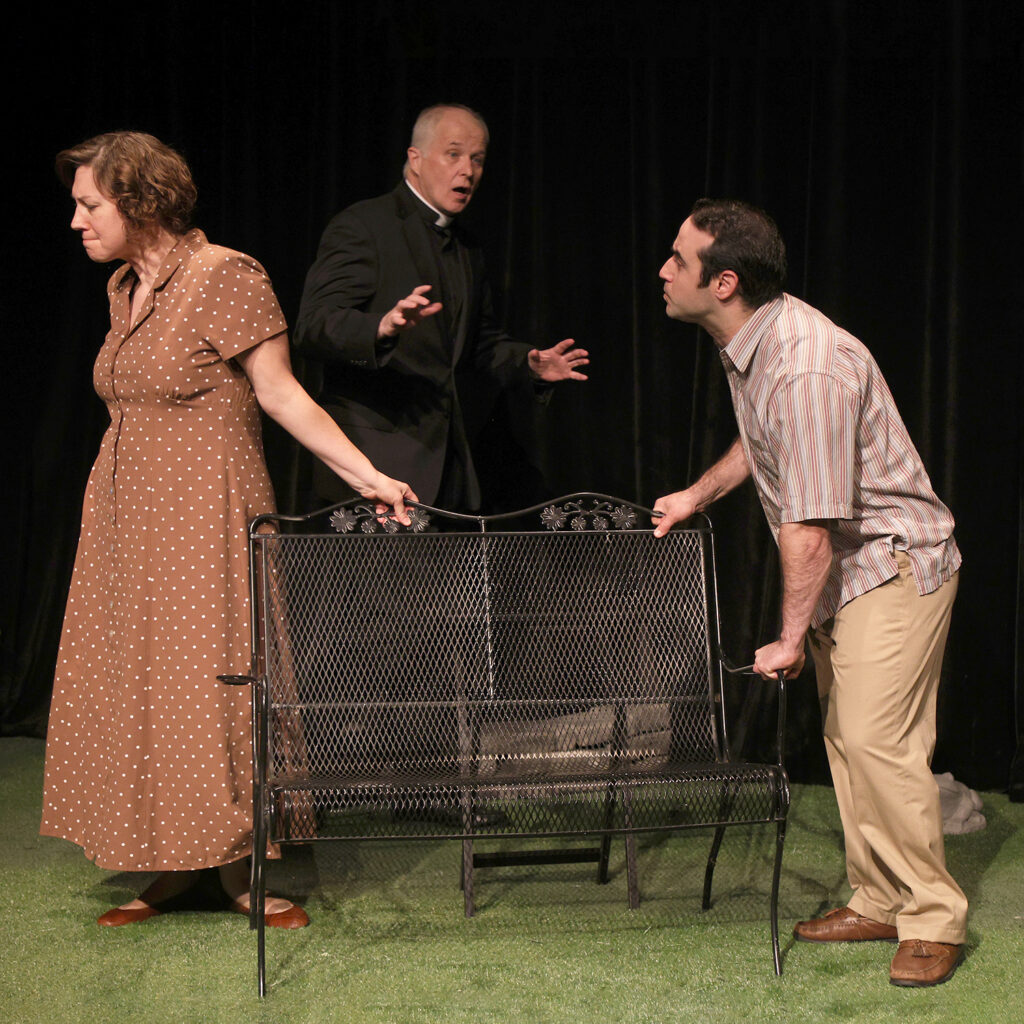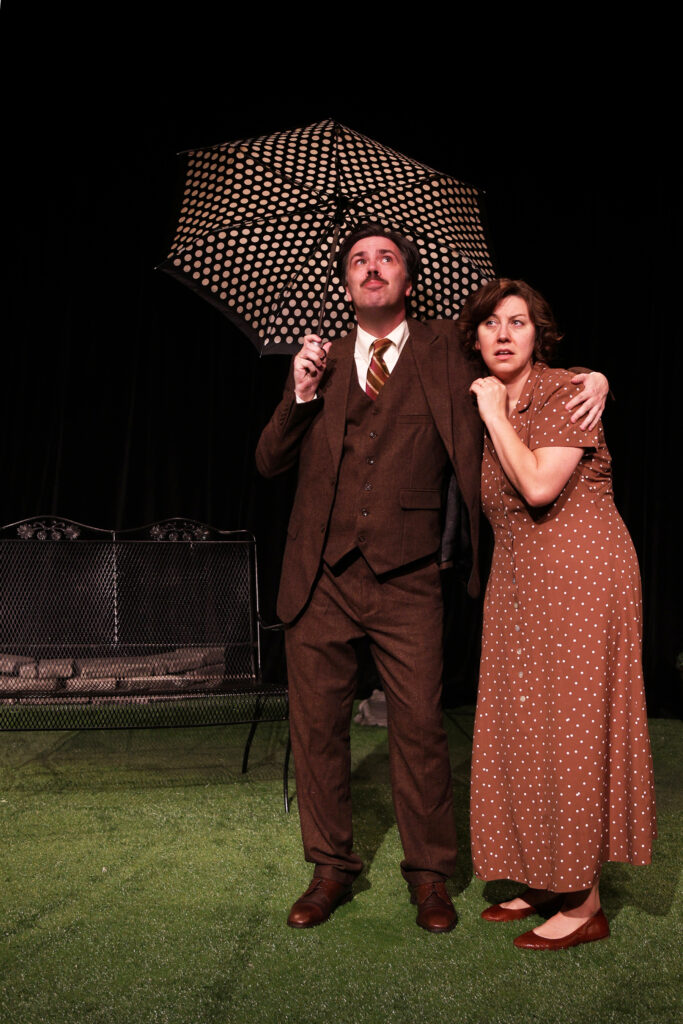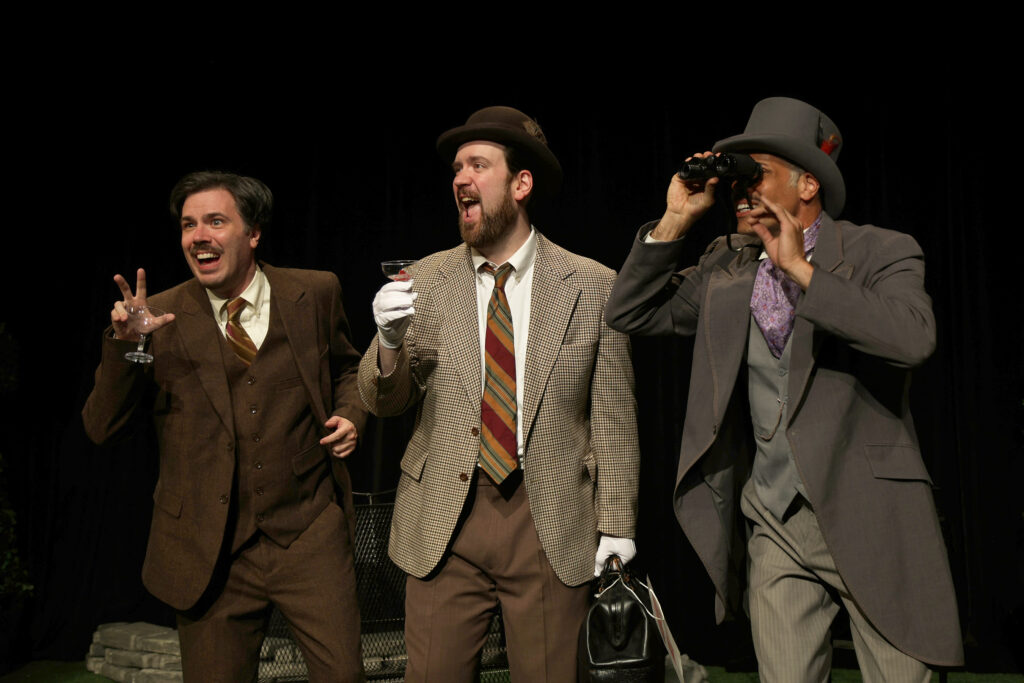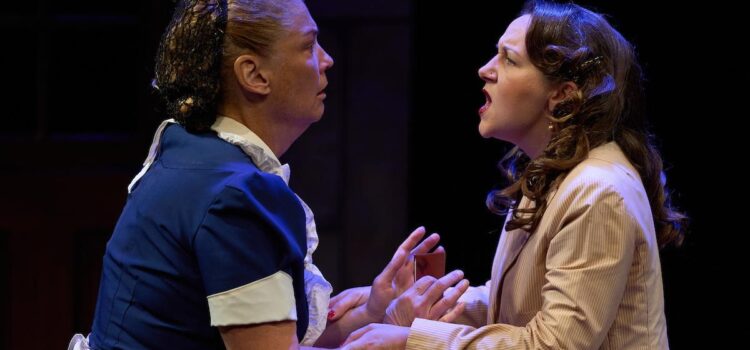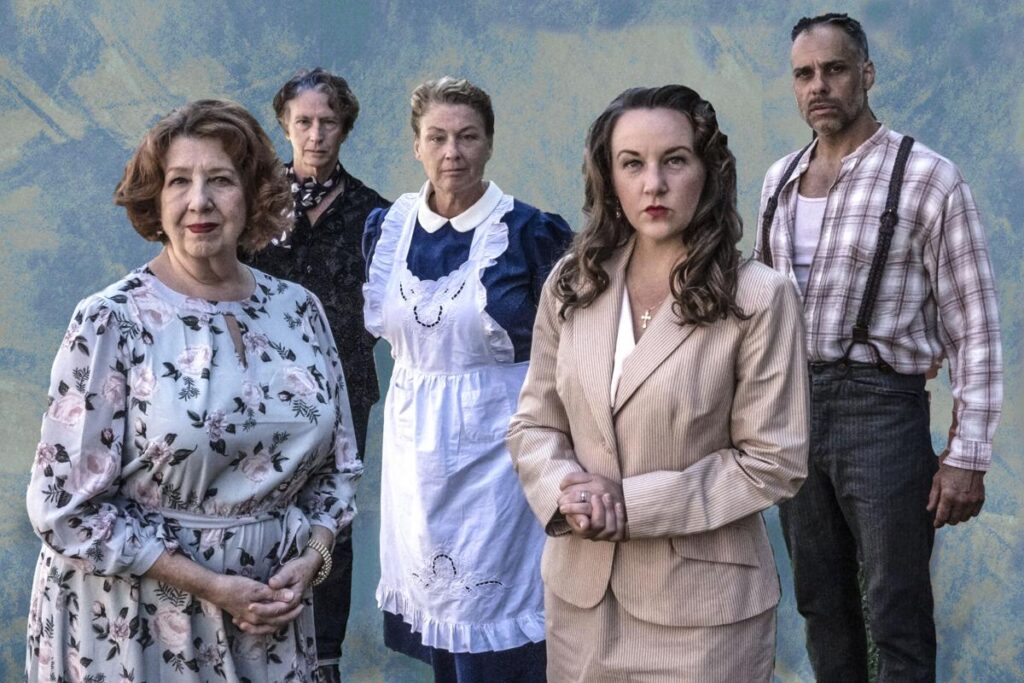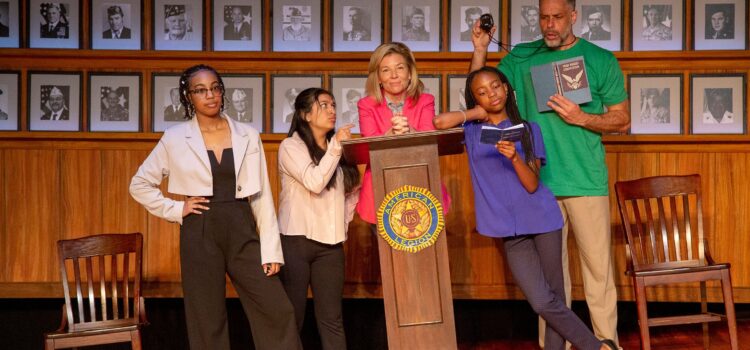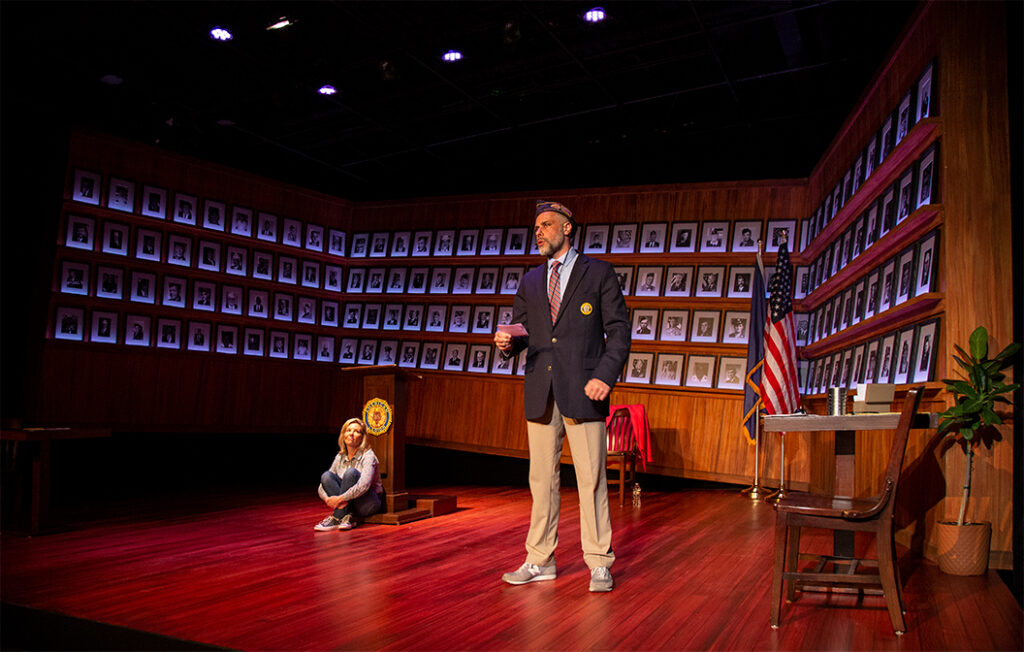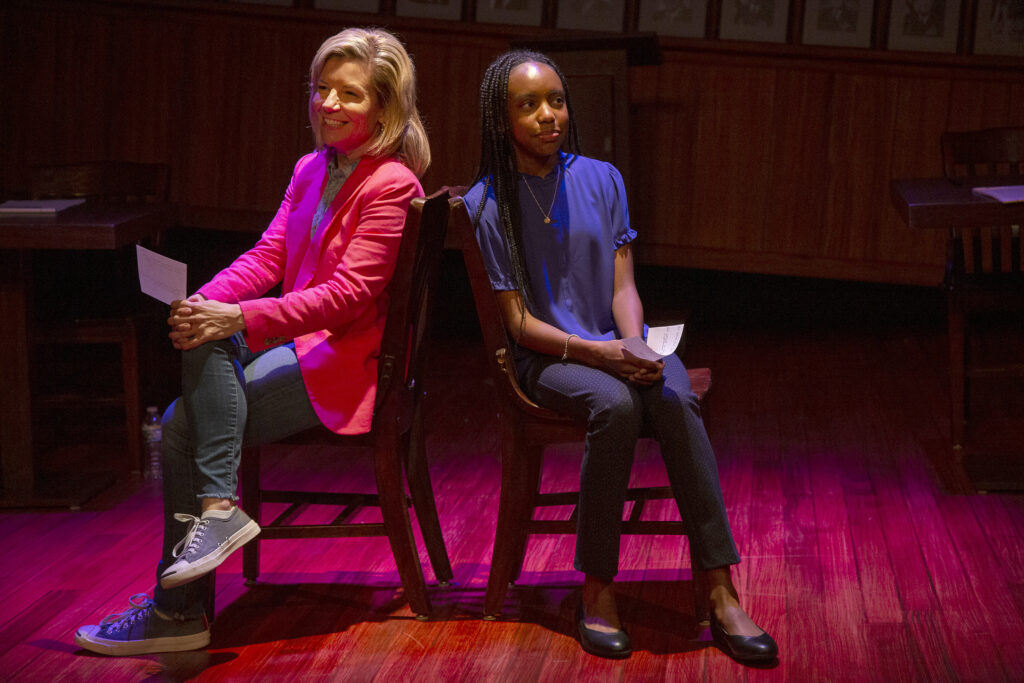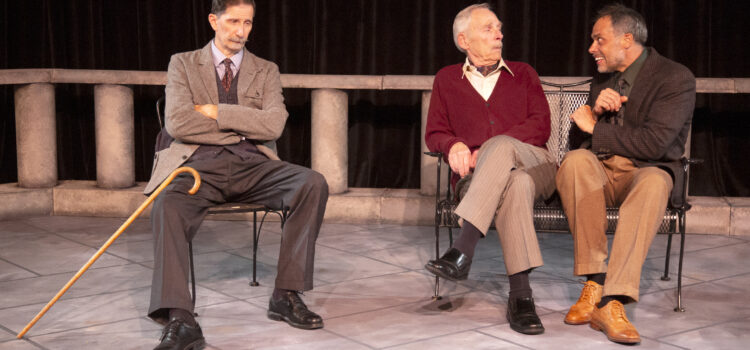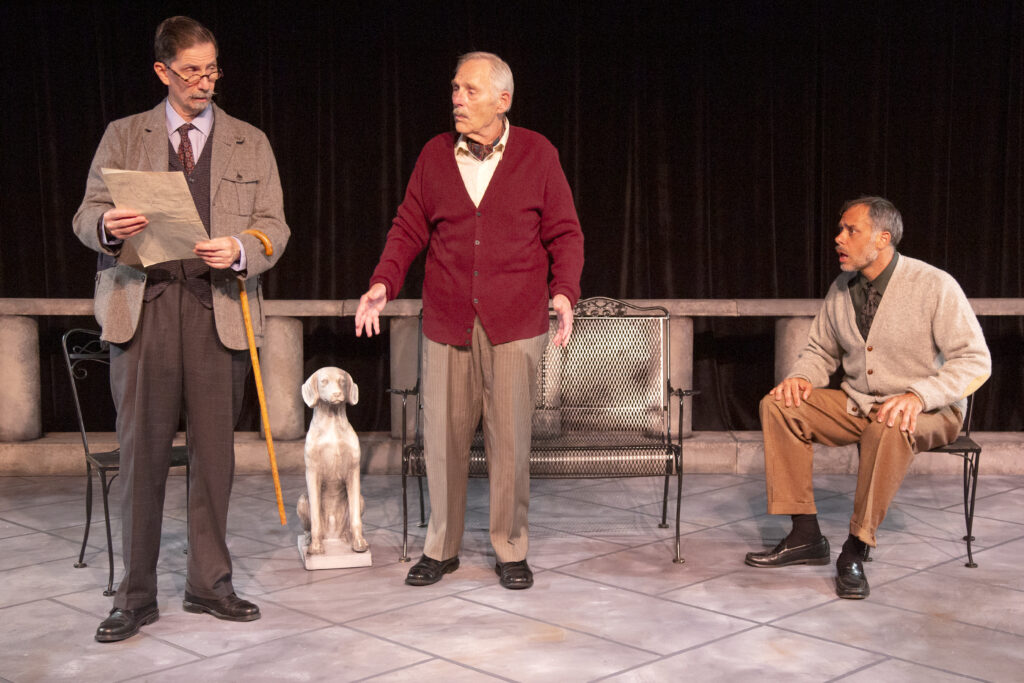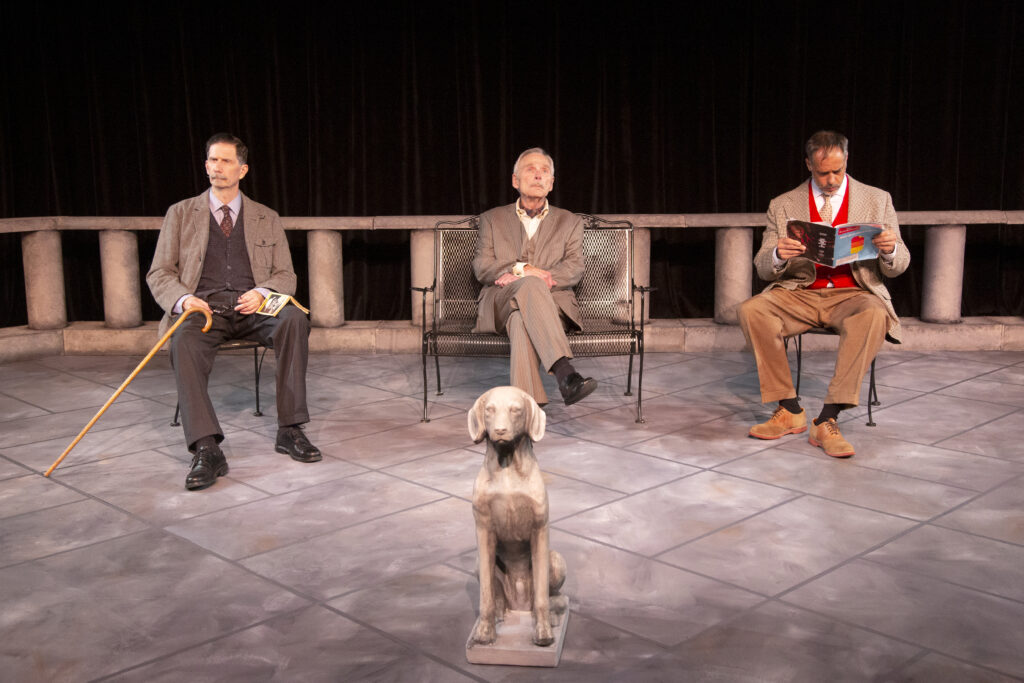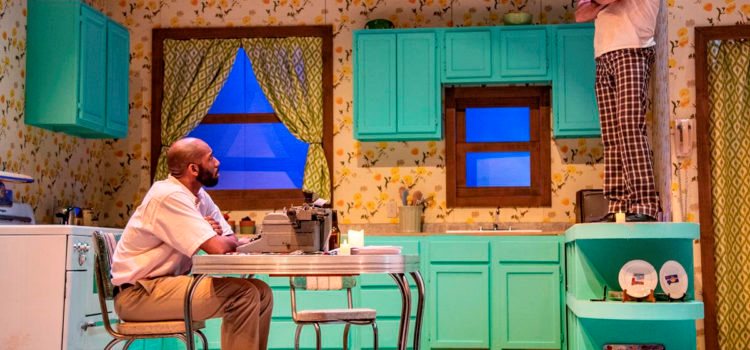By Lynn Venhaus
Wackiness will ensue. Four women with very distinct personalities, under suspicion for their husbands’ mysterious deaths, throw a party to socialize with eligible bachelors of a certain age. Everyone’s looking for companionship and whatever that might lead to, so what could go wrong?
Of course, nothing goes according to how the ladies and gentlemen imagined as secrets spill and drinks flow in the amusing “The Dance on Widow’s Row,” playwright Samm-Art Williams’ clever dark comedy about death, dating and superstition.
Mystery elements are also mixed in, so it keeps us guessing. The four Southern widows all live on the same street and between them have nine dead husbands. That’s a source of many jokes, but that’s not all that elicits laughs.
Williams’ wit shines through in light-hearted fashion, and the two-act play is familiar like a television situation comedy. In the hands of a very likeable cast, who have a ball with each other, the play has enough mischief and merriment to make a dreary winter more palatable.
It’s such a crowd-pleaser that this is the third production the Black Rep has mounted over its 49th season. Director Ron Himes, the founder and producing director, assembled an elite ensemble of veteran actors (I think casting is his superpower).
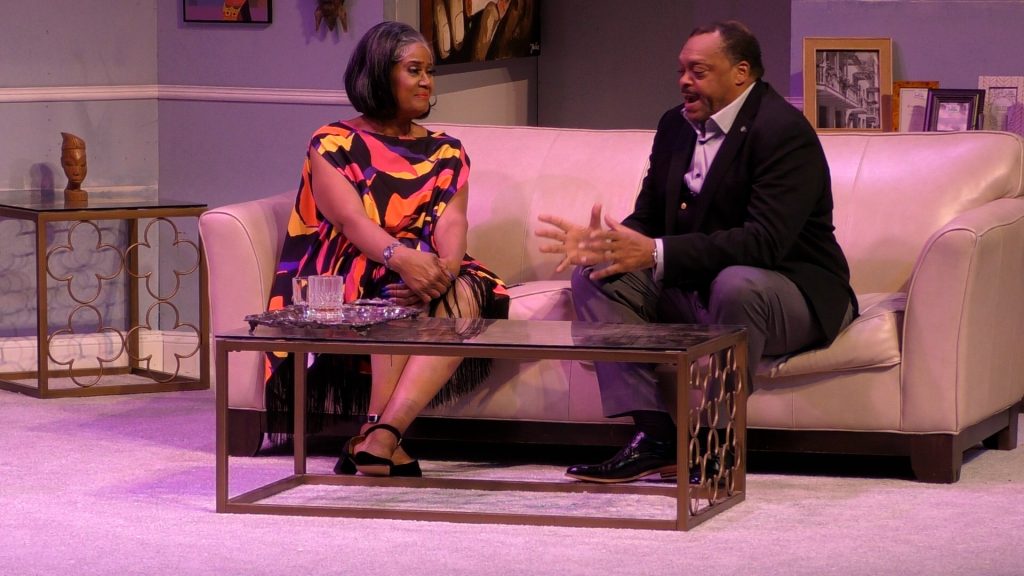
The seven performers – including Denise Thimes, A.C. Smith, Velma Austin, Margery Handy, Tiffany Tenille and Isaiah Di Lorenzo – know how to make the most of an entrance and exit. They sashay, strut and scamper easily across the well-appointed stage.
On opening night, Jan. 9, J. Samuel Davis was replaced as Newly Benson by Ron Himes, who admirably filled the role. Himes, adept at both drama and comedy, immediately connects because he’s so jittery about coming to the party.
The women are trying to revive their reputations in a fictional North Carolina coastal community, Port Town. They know they are the subject of gossip and inuendo, but that’s the chance they are willing to take.
These are full-bodied women, full of sass and spirit. Romance takes a back seat to the comedy, but it’s not for lack of trying to score Mr. Right.
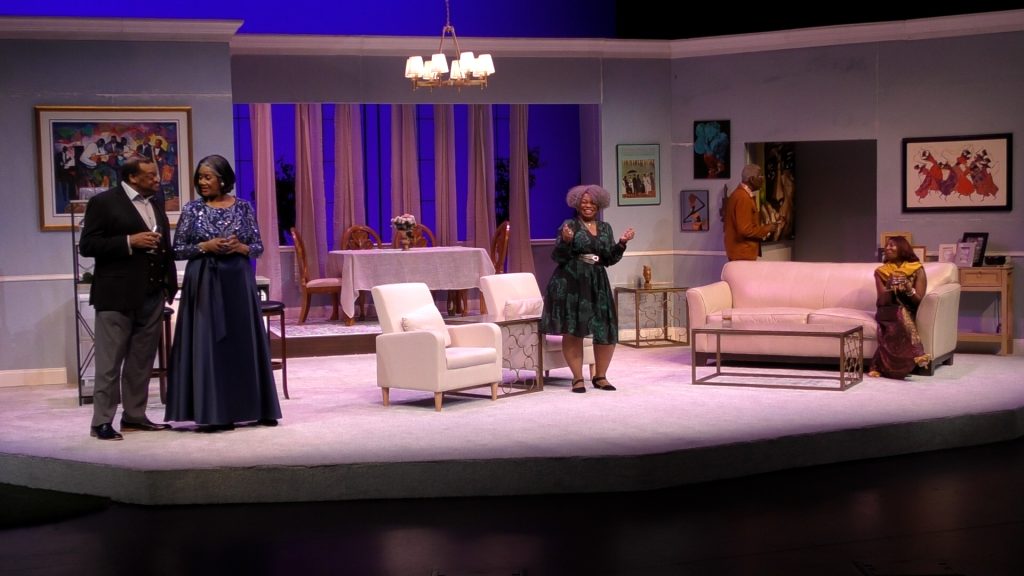
Thimes, who is a formidable leading lady, plays the sophisticated Magnolia Ellis, the hostess in her elegant home. Set designer Tim J. Jones mirrored Ellis’ style in chic décor, and prop designer Mikhail Lynn followed suit.
As she prepares for the party, she removes her late husband’s photo, saying: “I gave you a good funeral, so we’re even.”
Always excellent Velma Austin portrays the bold and audacious Simone Jackson, who has an attitude and speaks her mind, but is willing to play along for the ladies’ benefit.
Tiffany Tenille makes her Black Rep debut as the pious Annie Talbot, who doesn’t necessarily practice what she preaches. She’s outlived four husbands and professes to be lonely. As mousy as she appears, she sees an opportunity and strikes while the iron is hot, so to speak.
Margery Handy, also making her Black Rep debut, portrays the saucy Lois Miller, and she is ready to party heartily. Two of her husbands may have died from food poisoning, but that doesn’t prevent her from bringing her specialties – chicken wings and potato salad.
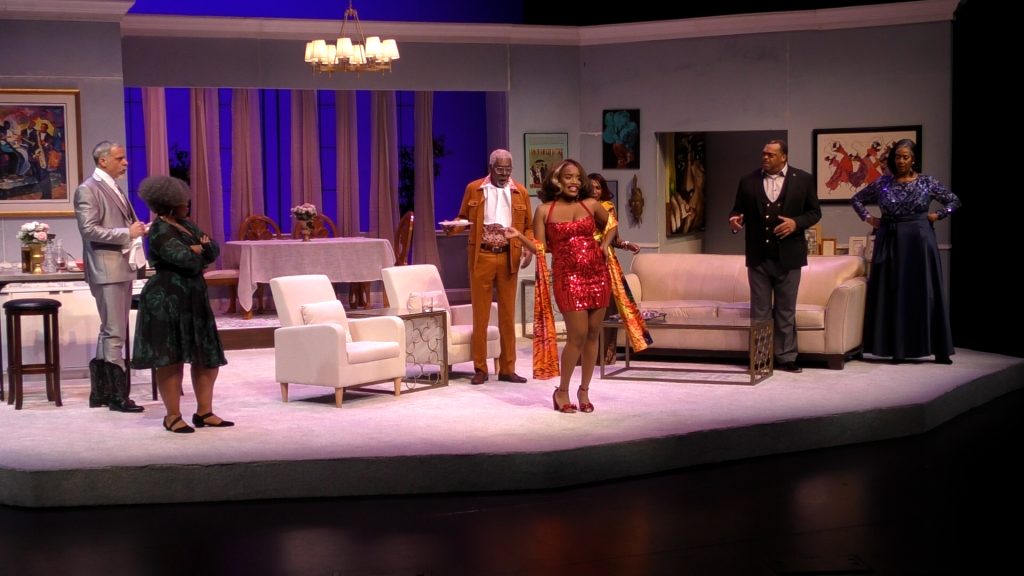
For the confident ladies, costume designer Brandin Vaughn has blended alluring upscale finery with some va-va-voom outfits emphasizing curves to make eye-catching statements. The men are sharply dressed, reflecting their personalities.
Himes knows how to mine laughs out of movement, and the cast is smooth in their shenanigans.
Because they are lonely, the men bravely take the plunge – even though Newly is very apprehensive and nervous – and show up for a night of drinks and dancing.
Isaiah Di Lorenzo is laugh-out loud hilarious as the oldest gentleman, Randall Spears, dapper and mannerly, but ready for a good time. Maybe he has too good of a time, and Di Lorenzo is a master of comic timing and body language on stage.
A.C. Smith, who was very funny as the blustery church pastor in “Chicken & Biscuits” a year ago, slips into another comedic role effortlessly, trying to be suave. Deacon Hudson is a leader of his flock – and a leader of this wolf pack.
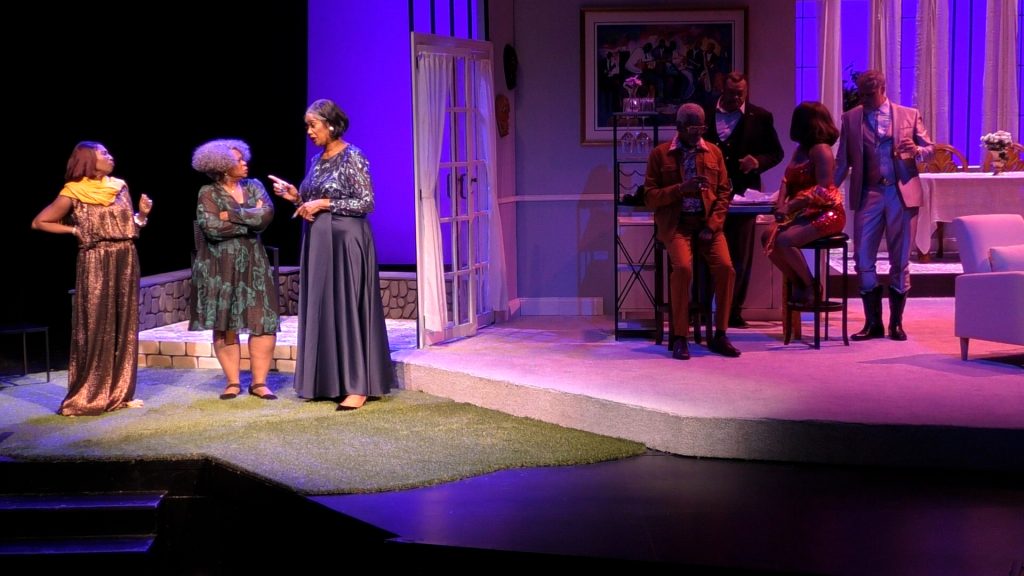
The women flit about, trying to connect and boost the ‘oomph’ as the night progresses, but the best-laid plans…not divulging too much of the plot, so people can enjoy the twists.
While trying to sparkle, the feisty females get aggravated at one’s attempt to outshine the others, and that leads to some caustic, catty remarks that are rapidly fired at the “inappropriate woman.”
Between the women going at it and the men fretting about being present possibly backfiring, the humor doesn’t slow down.
The technical crew has remarkably created a lived-in interior, and lighting designer Sean Savoie and sound designer Kareem Deanes expertly tailored sights and sounds for the occasion. The party music is quite appealing, and Smith displays some spry dance moves, and so does Thimes.
With such a fearless ensemble amplifying their characters’ quirks and Williams’ snappy dialogue, “The Dance on Widow’s Row” delivers the warmth and genuine humor much welcome in January.
The Black Rep presents “The Dance on Widow’s Row” Jan. 9 through Jan. 25. at The Edison Theater on the campus of Washington University in St. Louis.
Single tickets and subscriptions for Season 49 are available at theblackrep.org or through the Box Office at 314-534-3807. Reduced pricing is available for seniors, educators, museum staff, students and groups of 12 or more. For more information: www.theblackrep.org
.
.

Lynn (Zipfel) Venhaus has had a continuous byline in St. Louis metro region publications since 1978. She writes features and news for Belleville News-Democrat and contributes to St. Louis magazine and other publications.
She is a Rotten Tomatoes-approved film critic, currently reviews films for Webster-Kirkwood Times and KTRS Radio, covers entertainment for PopLifeSTL.com and co-hosts podcast PopLifeSTL.com…Presents.
She is a member of Critics Choice Association, where she serves on the women’s and marketing committees; Alliance of Women Film Journalists; and on the board of the St. Louis Film Critics Association. She is a founding and board member of the St. Louis Theater Circle.
She is retired from teaching journalism/media as an adjunct college instructor.

